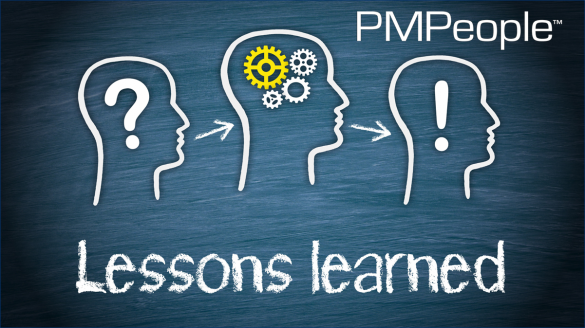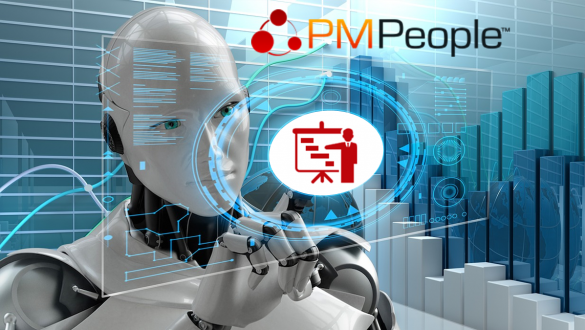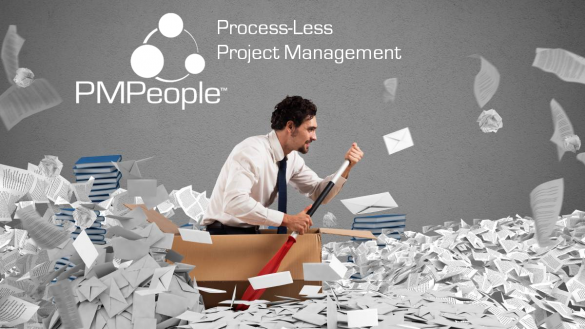Jose Barato
The Process-less, Value driven PMO
The PMO must strive to deliver value. One way to make the PMO much more effective without increasing its resources is to shift the management burden to project teams. This mission can begin by promoting three simple habits in the Project Manager: 1) Generate easy and frequent project status reports; 2) be accountable in regular project review meetings, and 3) serve to multiple stakeholders who monitor the project at their convenience.
Antipatterns to Implement a PMO
To govern 50-500 projects in execution, Project Management Offices should delegate project management to responsible professionals who ensure the success of each project, capable of being accountable, anticipating problems, and proposing and executing corrective actions before it’s too late. Antipatters emerge when the PMO is not designed by a project manager: Organizations fail to achieve the goal of improving project management maturity, convince executives that PMOs are cost centers that don’t add value, discourage stakeholders engagement, and close doors to project professionals. The most common antipatterns in PMO implementation are: 1) the IT specialist, 2) the consultant, 3) the process expert, and 4) the data scientist.
Project Management has changed from Outputs to Outcomes
Everyone can cook, but not everyone is a cook. Everyone can sing, but not everyone is a singer. Our profession is no different: everyone can track teamwork, but this does not make them project managers. If we need to know if a cook is a good professional, we do not need evidence to ensure that certain procedures are followed. We check the value result: we taste his or her food. The 8 project management performance domains in PMBOK7 makes everybody can tell if the project is being well managed.
Lessons Learned in Projects
Registering lessons learned often requires the project team to write some formal documentation. Discussions about lessons learned typically occur during the project closure meeting. Team members don’t remember the details, are reluctant to write about mistakes, and are already thinking about the next project. These discussions are valuable for personal growth and building professional relationships but, after the meeting, there is no reusable document with explicit knowledge. In PMPeople, the project management team can register lessons learned as they occur, reuse lessons from other projects, and prepare their own for future reuse.
Artificial Intelligence in Project Management Tools
As IA has already transformed the digital advertising industry, we believe it can also plan projects, elaborate reports, assign tasks, automate notifications and recommendations, evaluate people’s performance, discover issues, analyze trends, and so on. However, it is still too early to talk about artificial intelligence in the field of professional project management. In order for software to assist us in planning baselines, tracking progress, suggesting actions, anticipating issues, evaluating performance, etc., it is essential to have a historical database of projects within the organization’s context, on the organization’s private servers.
Process-Less Project Management
Managers don’t buy project management. They approve projects but don’t assign anyone to oversee the big picture, anticipate problems, make forecasts, be accountable, and ultimately, take responsibility for achieving success. They see that the project team self-manages through meetings, which they sometimes attend for information and other times to address issues on the fly. A project professional would know how to do it better, but since we have a reputation as bureaucrats (documents, processes, workflows, and more meetings), they prefer crises, that is, reacting by improvising when problems arise and it’s too late.
IT and Business working together in agile projects
Many software projects suffer from the clash between IT and Business departments:
1) The client requests a new feature.
2) The team develops the code, tests it, and release it.
3) The client rejects the work, undermining the team’s morale.
4) The supportive project manager takes the hit, encourages the team, and passes the ball back to the client.
An effective project manager should know how to change the game, getting Business and IT to collaborate effectively, managing the work as an agile project.
Projects Lifecycle: From Initiating to Closing
In all kind of projects, be them predictive, hybrid, or agile, it is effective for all involved parties (team members, project manager, program manager, portfolio manager, PMO, functional manager, sponsor, requester, and other stakeholders) to be able to distinguish in which management phase the project is now. Simplifying the technical details, a project can be in one of these 4 management phases: 1) initiating (not yet approved); 2) planning (the costly technical work has not yet begun); 3) executing (using costly resources); and 4) closing (technical work completed, in the process of formalizing closure).
Value Driven Project Management
While a project is on execution, the project professional makes decisions to optimize value delivery, which will come during the operational stage—well after the project has been closed. Value delivery is straightforward in agile projects, as management relies on continuous interactions with stakeholders who validate increments toward the final result. In predictive projects, it is possible for value to be delivered after a failed project, or vice versa: the project succeeds but no value is delivered. Through role-based collaboration, PMOs can delegate many project management activities, having more time to anticipate issues and deliver value.
The Future of Work (in Projects)
The presentation of Microsoft 365 Copilot made us imagine a future with AI assisting knowledge workers. Will project teams work with AI in the future? If you are a project professional, don’t be afraid: AI will not replace you. However, another professional who are more proficient in technology may take over. In the future, PPM tools will include AI. In the meantime, as a project manager, you should master tools for 1) self-organize; 2) team collaboration; 3) schedule and control time and costs; and 4) manage multiple projects with many people.
Categories
- Business (16)
- Demand Management Roles (14)
- Frequently Asked Questions (7)
- Guide (26)
- People (23)
- Assignments (2)
- Feedback (2)
- Project Team (3)
- Tracking Time And Expenses (2)
- Process (9)
- Closing (2)
- Executing And Controlling (2)
- Planning (1)
- Project Management (67)
- Management Frameworks (18)
- Organization Owner (OO) (3)
- Project Economy (54)
- Tools (19)
- Supply Management Roles (5)
- Training (6)
- Uncategorized (1)












